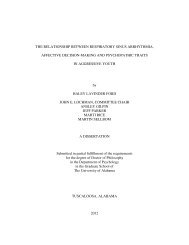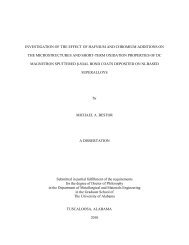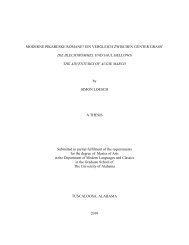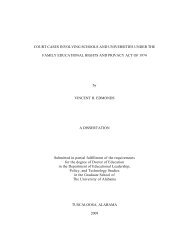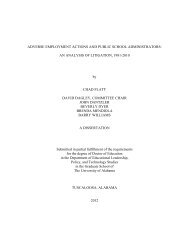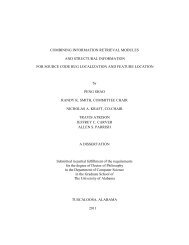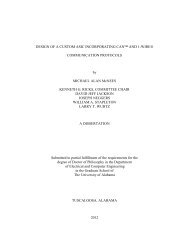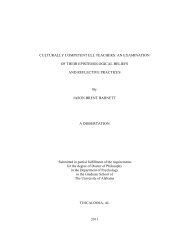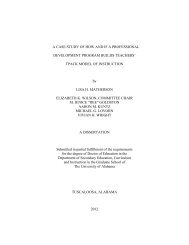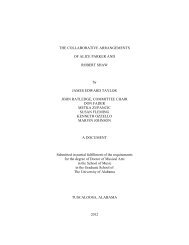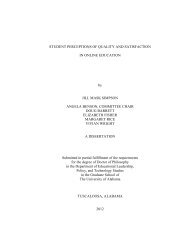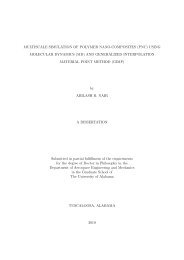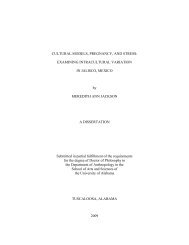TITLE PAGE - acumen - The University of Alabama
TITLE PAGE - acumen - The University of Alabama
TITLE PAGE - acumen - The University of Alabama
Create successful ePaper yourself
Turn your PDF publications into a flip-book with our unique Google optimized e-Paper software.
CHAPTER 4<br />
REXAMINING EXTREME LONGEIVTY OF THE CAVE CRAYFISH ORCONECTES<br />
AUSTRALIS USING NEW MARK-RECAPTURE DATA: A LESSON ON THE<br />
LIMITATATIONS OF ITERATIVE SIZE-AT-AGE MODELS<br />
Abstract<br />
Centenarian species, defined as those taxa with life spans that frequently exceed 100 years, have<br />
long been <strong>of</strong> interest to ecologists because they represent an extreme end point in a continuum <strong>of</strong><br />
life history strategies. One frequently reported example <strong>of</strong> a freshwater centenarian is the<br />
obligate cave crayfish Orconectes australis, with a maximum longevity reported to exceed 176<br />
years. As a consequence <strong>of</strong> its reported longevity, O. australis has been used as a textbook<br />
example <strong>of</strong> life-history adaptation to the organic-carbon limitation that characterizes many cavestream<br />
food webs. Despite being widely reported, uncertainties surround the original estimates <strong>of</strong><br />
longevity for O. australis, which were based on a single study dating from the mid-1970s. In the<br />
present study, the growth rate, time-to-maturity, female age-at-first-reproduction and longevity<br />
<strong>of</strong> O. australis was reevaluated using a mark-recapture study <strong>of</strong> more than 5 years based upon<br />
more than 3,800 free-ranging individuals from three isolated cave streams in the southeastern<br />
United States. <strong>The</strong> results <strong>of</strong> this study indicate that accurate estimates <strong>of</strong> the longevity <strong>of</strong> O.<br />
australis are



